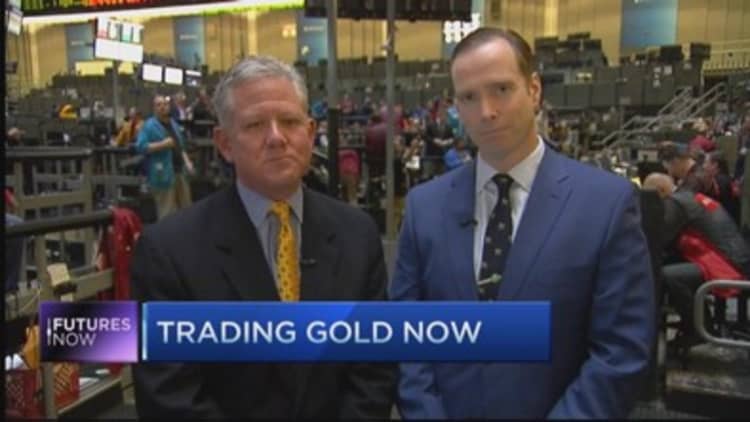Gold turned lower on Tuesday, pressured by the firm U.S. dollar and weak oil prices, and with expectations that the Federal Reserve will increase interest rates this year pushing bullion toward its second monthly decline.
Gold has fallen 3 percent since hitting a three-week high last week above $1,200 an ounce after Federal Reserve Chair Janet Yellen on Friday signaled a rate hike could be likely later this year.
Yellen's remarks on sustained gains in the U.S. economy halted a seven-day rally in bullion—the longest rising streak since 2012—which had been spurred by hopes the Fed would take it slow in raising rates.
"Yellen has managed to do a balancing act at the end of the last Fed meeting, on one hand removing the patience language, on the other giving the impression that rates would rise at a more sedate pace than the market initially expected," Natixis analyst Nic Brown said.
"Our best case scenario is a June rate hike and in the interim there is certainly scope for more weakness in gold."
Spot gold was down 0.2 percent at $1,188 an ounce, while U.S. gold for April delivery settled down $1.70 at $1,184.80 an ounce.

Spot prices have lost 2.5 percent so far in March, its second straight monthly decline. The metal was on track to finish the first quarter down a slight 0.06 percent, its third straight quarterly drop.
Read MoreA $500,000 gold mountain bike!?!
"It was fighting headwinds all day," said James Steel, chief metals analyst for HSBC Securities in New York, noting pressure from the strong dollar and decline in oil prices.
A firmer dollar, which was on track for its strongest quarter since 2008, makes gold more expensive for holders of other currencies and typically erodes its appeal.
Investors were awaiting U.S. jobs data on Friday, with a robust report likely to increase the chances that policymakers could raise U.S. rates sooner than later.

